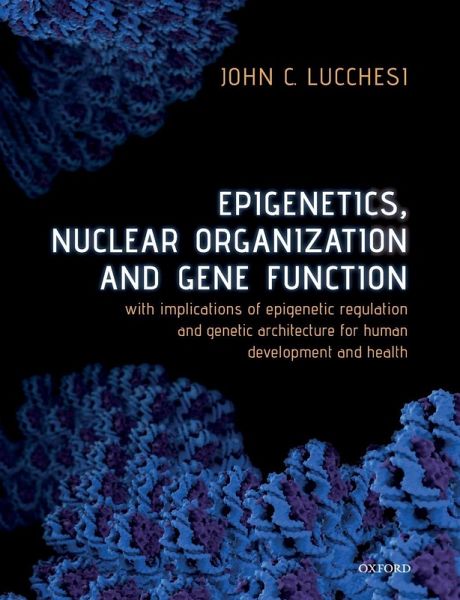
Epigenetics, Nuclear Organization & Gene Function
With Implications of Epigenetic Regulation and Genetic Architecture for Human Development and Healt

PAYBACK Punkte
46 °P sammeln!
Epigenetics is the study of heritable changes in gene function that do not involve changes in the DNA sequence. These changes, consisting principally of DNA methylation, histone modifications, and non-coding RNAs, maintain or modulate the initial impact of regulatory factors that recognize and associate with particular genomic sequences. Epigenetic modifications are manifest in all aspects of normal cellular differentiation and function, but they can also have damaging effects that result in pathologies such as cancer. Research is continuously uncovering the role of epigenetics in a variety of...
Epigenetics is the study of heritable changes in gene function that do not involve changes in the DNA sequence. These changes, consisting principally of DNA methylation, histone modifications, and non-coding RNAs, maintain or modulate the initial impact of regulatory factors that recognize and associate with particular genomic sequences. Epigenetic modifications are manifest in all aspects of normal cellular differentiation and function, but they can also have damaging effects that result in pathologies such as cancer. Research is continuously uncovering the role of epigenetics in a variety of human disorders, providing new avenues for therapeutic interventions and advances in regenerative medicine. This book's primary goal is to establish a framework that can be used to understand the basis of epigenetic regulation and to appreciate both its derivation from genetics and interdependence with genetic mechanisms. A further aim is to highlight the role played by the three-dimensional organization of the genetic material itself (the complex of DNA, histones and non-histone proteins referred to as chromatin), and its distribution within a functionally compartmentalized nucleus. This architectural organization of the genome plays a major role in the subsequent retrieval, interpretation, and execution of both genetic and epigenetic information.




